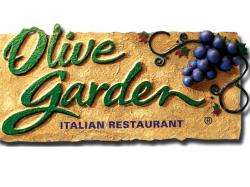Darden Designing LEED Restaurants
February 24, 2010 | 3 min to read

ORLANDO, Fla., Feb. 23 — Darden Restaurants today announced that it has begun a system-wide sustainable restaurant design initiative involving the use of Leadership in Energy and Environmental Design (LEED) standards in its restaurant design process for all new restaurants and, where feasible, restaurant remodels. The initiative is part of Darden’s broader sustainability efforts aimed at limiting business impact on the environment while also enhancing the operational efficiency of its restaurants.
Darden’s three largest brands Red Lobster, Olive Garden and LongHorn Steakhouse are designing eight restaurants to achieve LEED certification from the United States Green Building Council (USGBC). The company plans to apply learnings from those eight restaurants to new restaurants and remodels across its portfolio in the future. The Olive Garden in Jonesboro, Ark., which opened for business last month, is the first of eight restaurants the company is designing to meet LEED standards. One more Olive Garden and two Red Lobsters are scheduled to open in 2010, followed by one Olive Garden, two Red Lobsters and one LongHorn Steakhouse in 2011.
“Our goal with this initiative is to utilize each of the eight restaurants as a learning lab,” said Suk Singh, senior vice president of Development for Darden. “While we may not seek LEED certification for every restaurant we build or remodel, we can make a positive impact by learning from the eight restaurants where we are seeking LEED certification and applying best practices across our entire portfolio.
“Every restaurant we build represents a 30-year investment, so we want to build them to last,” Singh continued. “But more importantly, we want to build them in a sustainable manner from both a construction standpoint and an operational one.”
Olive Garden’s newest restaurant in Jonesboro, which was designed to achieve LEED certification, features a number of sustainable design elements. They include:
Recycled Building Materials Supplies such as sheetrock, doors and windows were made from recycled content. The flooring features carpet squares made from 100% recycled materials.
Increased Use of Natural Light Incorporating more windows more frequently into the building’s exterior reduces the need for artificial light.
Energy Efficient Equipment and Fixtures Items such as Energy Star rated equipment and low-flow water nozzles in the kitchen, as well as automatic faucets in the restrooms, reduce energy and water usage. New LED light bulbs that utilize seven watts of energy and last up to 50,000 hours replace bulbs that used 75 watts and had to be changed two to three times a year.
Reclaimed Heat To supplement the heating of hot water in the kitchen, heat expelled from the condensing units of the HVAC system and the Freezer/Cooler condensing units is reclaimed and used to heat water.
Together, these elements will help reduce energy consumption in each restaurant significantly.
“Our restaurant teams are at the forefront of our commitment to environmental responsibility,” said Dave Pickens, president of Olive Garden. “They are excited about what we can learn from this new restaurant, and others, to make our business smarter and more sustainable. And the learning doesn’t stop with this initiative. All of our restaurants have Green Teams that, in addition to implementing programs aimed at reducing waste and energy and water usage, look for other ways to make an impact.”
“Darden is actively committed to sustainability,” said Ian Olson, director of Sustainability for Darden. “Our business relies on a number of natural resources, and we want to be the best stewards of those resources that we can be. By doing so, we can ensure the long-term success of our business while protecting and enhancing the communities where we do business.”
Darden recently opened its new corporate headquarters facility in Orlando which is on track to earn LEED Gold certification from the USGBC. It’s the largest LEED Gold new construction project in the state of Florida.
Source: Darden Restaurants Inc.
